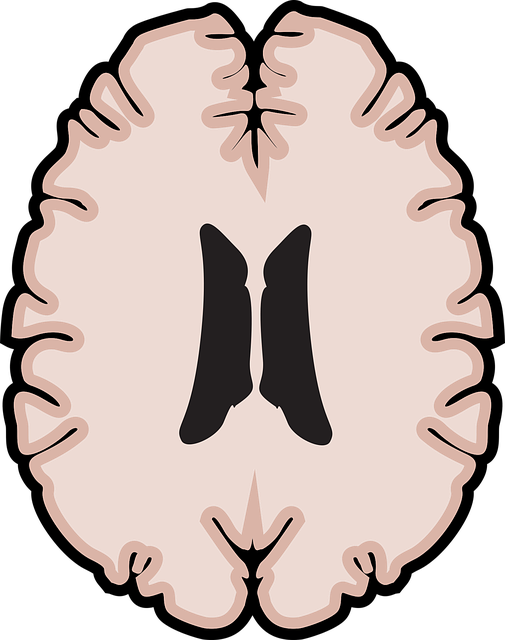Understanding mental health data involves collecting sensitive information through various methods to create a comprehensive picture of individuals' psychological well-being. Specialized software aids in organizing this data, allowing for structured analysis that informs interventions like Castle Rock Terminal Illness Therapy and public health initiatives. Analyzing trends from therapy centers and research reveals correlations and guides tailored programs, such as burnout prevention and conflict resolution strategies. Interpreting data requires a deep dive into the human experience, considering social determinants and cultural influences to uncover underlying causes of mental health issues in specific demographics. A case study shows Castle Rock Terminal Illness Therapy's effectiveness in enhancing outcomes for terminally ill individuals through holistic approaches like journaling and emotional intelligence development. Data analysis personalizes therapy, aids strategic planning, and promotes self-awareness among care providers, ultimately improving patient outcomes and support quality.
Mental health data analysis is a powerful tool for understanding and improving global well-being. This article explores key aspects of interpreting mental health data, from collecting and organizing information to uncovering trends and patterns within statistics. We delve into the significance of specific case studies, such as Castle Rock Terminal Illness Therapy, showcasing how data insights can enhance care and revolutionize treatment approaches. By understanding these components, professionals can make informed decisions to improve mental health outcomes.
- Understanding Mental Health Data: Collecting and Organizing Information
- Analyzing Trends: Uncovering Patterns in Mental Health Statistics
- Interpreting Results: What Do the Numbers Really Mean?
- The Impact of Castle Rock Terminal Illness Therapy: A Case Study
- Enhancing Care: Using Data Insights to Improve Mental Health Treatment
Understanding Mental Health Data: Collecting and Organizing Information

Understanding Mental Health Data involves a meticulous process of collecting and organizing information that is both complex and sensitive. It begins with structured questionnaires, clinical interviews, and self-reported measures designed to capture symptoms, behaviors, and contextual factors relevant to mental health. This data can include demographics, medical history, substance use, and social support networks – all vital pieces in the puzzle of an individual’s psychological well-being.
Organizing this data requires a systematic approach, often facilitated by specialized software tools, to ensure accuracy and consistency. By categorizing and coding responses, researchers and clinicians can identify patterns, trends, and correlations that shed light on mental health issues prevalent within specific populations. This structured analysis forms the foundation for evidence-based interventions, like Castle Rock Terminal Illness Therapy, and informs the development of public awareness campaigns, stress management workshops, and mental wellness coaching programs, ultimately contributing to improved public health outcomes.
Analyzing Trends: Uncovering Patterns in Mental Health Statistics

Analyzing trends within mental health statistics is akin to unearthing hidden patterns in a vast tapestry. By combing through data from various sources, including Castle Rock Terminal Illness Therapy centers and research institutions, professionals can identify recurring themes and anomalies. This process involves sophisticated techniques that range from simple statistical analysis to complex machine learning algorithms. The goal is to uncover not just correlations but also causal relationships, enabling more effective interventions and personalized treatments.
For instance, data might reveal a surge in certain mental health conditions during specific periods, such as pandemic lockdowns. This insight could trigger the development of targeted programs, like enhanced Burnout Prevention Strategies for Healthcare Providers or Conflict Resolution Techniques, to address emerging needs. Moreover, by understanding these trends, Trauma Support Services can be tailored to specific demographics or groups, ensuring that resources are allocated optimally and reaching those who need them most.
Interpreting Results: What Do the Numbers Really Mean?

Interpreting mental health data requires a nuanced understanding of what the numbers truly signify. While statistics can paint a comprehensive picture of trends and patterns within populations, they often abstract complex human experiences. For instance, data might indicate a rising prevalence of anxiety disorders, but this figure alone doesn’t capture the lived realities—the daily struggles, coping mechanisms, or access to Castle Rock Terminal Illness Therapy—of individuals grappling with anxiety.
To truly comprehend these findings, researchers and advocates must consider the broader context, including social determinants of health, cultural influences, and systemic barriers such as Mental Health Policy Analysis and Advocacy efforts or Mindfulness Meditation practices. By delving into these layers, we can gain insights into why certain mental health issues are more prevalent in specific demographics and develop targeted interventions. For example, understanding the impact of stigma reduction efforts on help-seeking behaviors can inform strategies to improve access to care for marginalized communities.
The Impact of Castle Rock Terminal Illness Therapy: A Case Study

Castle Rock Terminal Illness Therapy has shown remarkable impact in improving mental health outcomes, as evidenced by a recent case study. The therapy focuses on providing comprehensive support to individuals facing terminal illnesses, integrating various techniques such as Mental Wellness Journaling Exercise Guidance and Emotional Intelligence development. This holistic approach not only addresses the emotional challenges associated with serious illness but also fosters Self-Care Routine Development for Better Mental Health.
The case study highlights how Castle Rock’s therapy sessions empowered patients to cope with stress, anxiety, and depression, enhancing their overall quality of life. Through regular journaling exercises, participants gained a deeper understanding of their emotions, allowing them to express and process complex feelings. Additionally, the therapy encouraged emotional awareness and enhanced interpersonal connections, contributing to improved mental wellness and resilience in the face of adversity.
Enhancing Care: Using Data Insights to Improve Mental Health Treatment

In the realm of mental health care, data analysis has emerged as a powerful tool to enhance and improve treatment strategies. By meticulously examining patient records, survey responses, and clinical outcomes, professionals can uncover valuable insights that were previously hidden. This approach, often referred to as evidence-based practice, plays a pivotal role in personalizing Castle Rock Terminal Illness Therapy, ensuring that each individual receives tailored support. For instance, analyzing trends in patient demographics and treatment responses can help mental health professionals identify specific populations that may benefit from unique therapeutic interventions or specialized services, fostering more effective care delivery.
Moreover, data-driven insights extend beyond patient treatment. They contribute to strategic planning, including Risk Management Planning for Mental Health Professionals. By understanding the prevalent mental health issues within communities and tracking their impact over time, professionals can proactively develop programs that address growing concerns. This proactive approach not only improves patient outcomes but also strengthens the overall mental health ecosystem. Additionally, cultivating Self-Awareness Exercises and promoting Emotional Intelligence among care providers can further enhance this process, as it enables professionals to recognize patterns in their practices and make informed adjustments, ultimately elevating the quality of care for those seeking assistance with terminal illnesses.
Mental health data analysis is a powerful tool for understanding and improving treatment outcomes. By delving into trends, interpreting results, and applying insights from case studies like Castle Rock Terminal Illness Therapy, we can enhance care and better support those in need. Utilizing these strategies enables us to navigate the complex landscape of mental health statistics and foster a more effective and compassionate approach to treatment.












